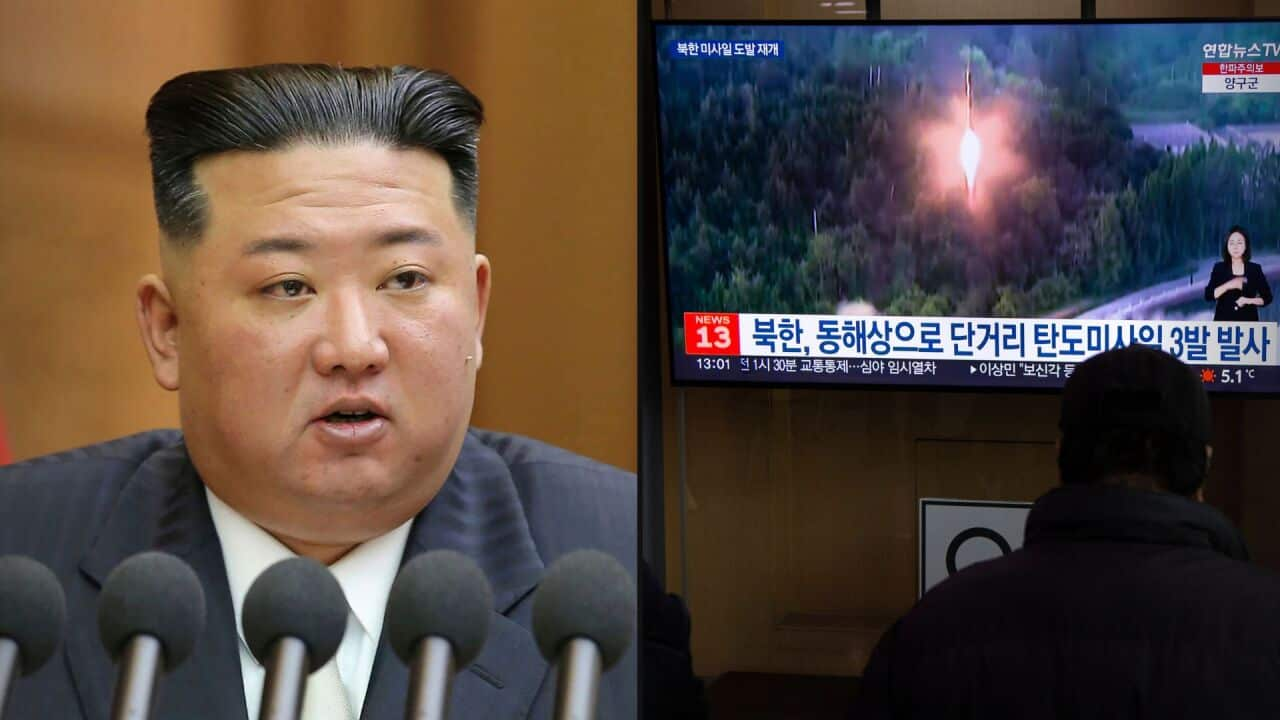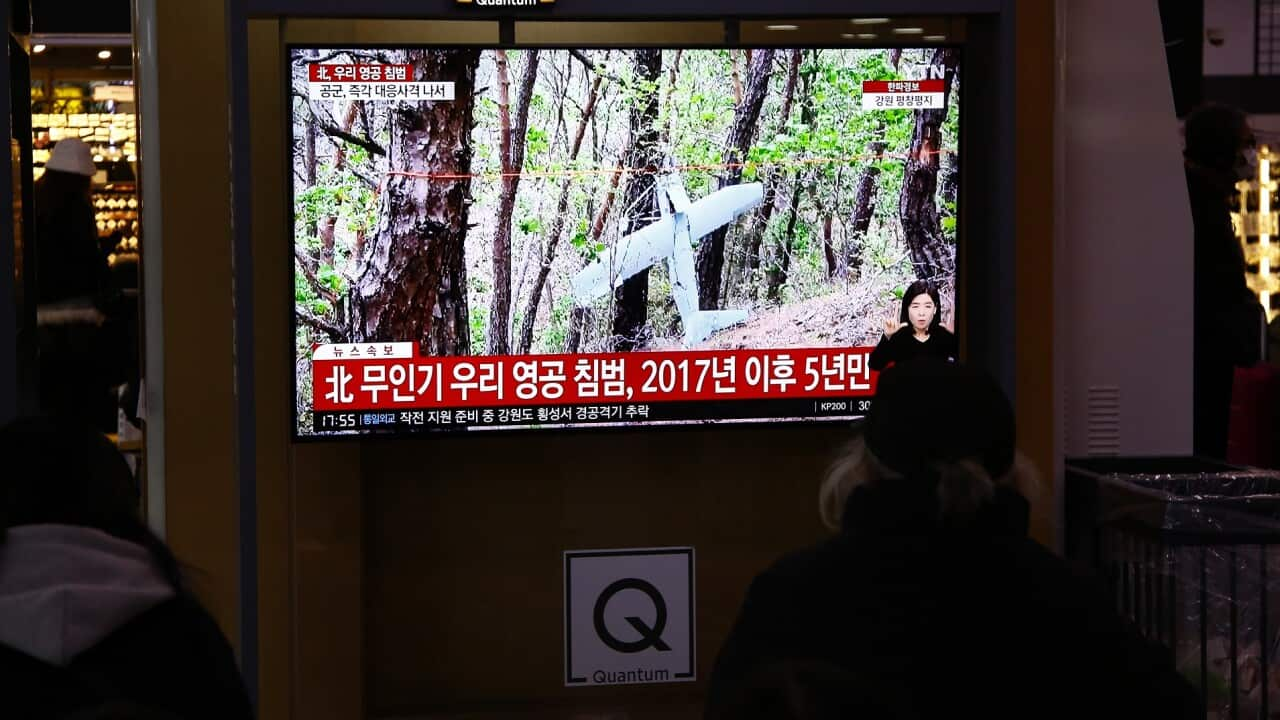KEY POINTS
- The three missiles flew at an altitude of around 100 km for a distance of around 350 km.
- The launches came a day after South Korea successfully tested a new space launch vehicle.
- Not counting the latest round, North Korea has fired around 70 ballistic missiles in 2022, Yonhap news agency says.
North Korea fired three short-range ballistic missiles Saturday, Seoul's military said, adding a final salvo to Pyongyang's record-breaking blitz of launches this year.
Military tensions on the Korean peninsula have risen sharply in 2022 as the North has conducted sanctions-busting weapons tests nearly every month, including firing its most advanced intercontinental ballistic missile ever.
Saturday's launch comes a day after South Korea successfully tested a solid-fuel space launch vehicle, and follows the incursion of five North Korean drones into the South's airspace earlier in the week.
South Korea's military said it had detected "three short-range ballistic missiles launched by North Korea into the East Sea from the area of Chunghwa County, North Hwanghae Province, at around 08:00 (2300 GMT)", referring to the body of water also known as the Sea of Japan.
The missiles flew about 350 kilometres before splashing down, it added.
"Our military maintains a full readiness posture while closely cooperating with the US and strengthening surveillance and vigilance," the Joint Chiefs of Staff said.
Monday's North Korean drone incursion was the first such incident in five years and prompted an apology from Seoul's defence minister after the military failed to shoot down a single drone despite scrambling jets for a five-hour operation.
South Korean president Yoon Suk-yeol called the incident "intolerable" and added that the South should ensure that Pyongyang realised that "provocations are always met with harsh consequences".
Seoul's military staged drills Thursday that the country's top brass said would improve its defences against any future drone provocations.
And on Friday, South Korea successfully tested a new space launch vehicle as part of its drive to strengthen space-based reconnaissance and surveillance capabilities, the defence ministry said.
Pyongyang earlier this month said it conducted an "important final-stage" test for the development of a reconnaissance satellite, claiming it had developed advanced technologies to take images from space.
"The purpose of North Korea's missile launch today is to respond to Seoul's solid-fuelled space launch vehicle. Pyongyang seems to be thinking of this as a competition," Yang Moo-jin, a professor at the University of North Korean Studies in Seoul, told AFP.
Party meeting
North Korea is currently holding a major party meeting in Pyongyang at which Kim and other senior party officials are outlining their policy goals for 2023 in key areas including diplomacy, security and the economy.
Earlier this year, North Korean leader Kim Jong Un said he wanted his country to have the world's most powerful nuclear force and declared the North an "irreversible" nuclear state.
On Wednesday, Kim set out "new key goals" for the country's military, state media reported, without giving any specifics.
North Korea's end-of-year plenary meetings are typically used by the regime to unveil the country's domestic and foreign policy priorities for the year ahead.
LISTEN TO

APEC anger over North Korea's missiles
SBS News
04:06
Full details of the current session are expected to be announced after it concludes.
While Kim focused on the economy at the 2021 plenary, analysts are widely expecting a shift in tone this year to highlight the military front in light of the recent blitz of missile launches.
In past years, Kim had delivered a speech every January 1, but he recently dropped the tradition in favour of making announcements at the year-end plenary meeting.
The Saturday launch could be seen as "a gift from Kim Jong Un to the people, marking the end of the year with record-breaking missile launches, while congratulating the Workers' Party of Korea's plenary meeting," North Korean studies scholar Ahn Chan-il told AFP.
"Kim is trying to send a message that the people should feel safe, as their country is clearly a military power, although it may be suffering economically."
The United States and South Korea have warned for months that Pyongyang is preparing to conduct its seventh nuclear test.
North Korea is under multiple UN Security Council sanctions over its nuclear and missile activity since 2006.


